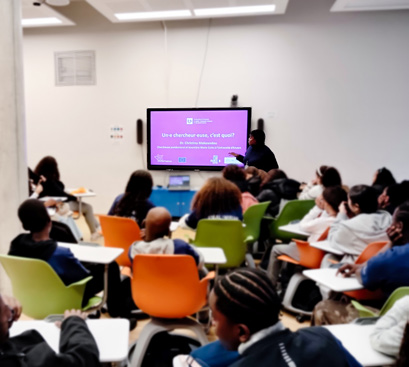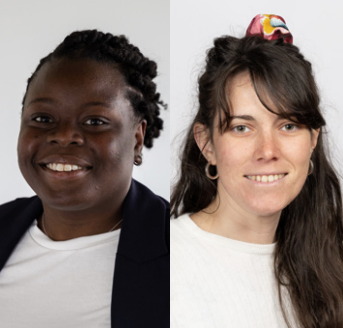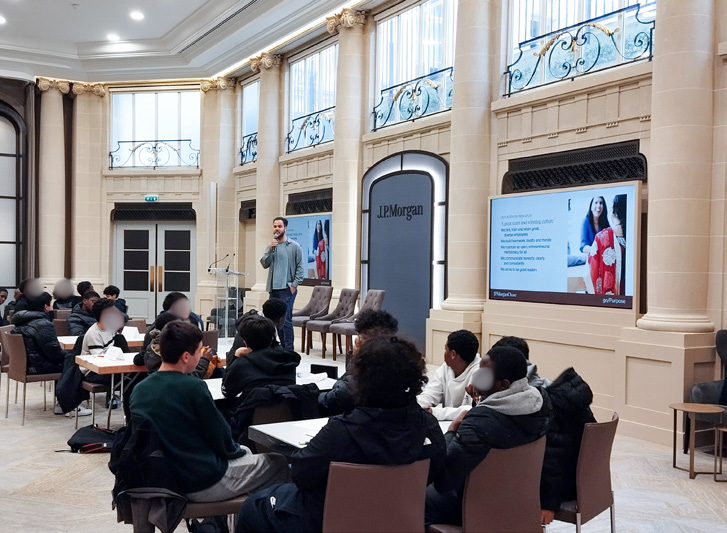News from the MCAA - When researchers return to the classroom: a cross-shared experiences journey and perspectives - September 2025
Newsletter
Public outreach, science communication, and, most importantly, direct encounters with pupils remain an important task in the spirit of sharing knowledge as a scientist/researcher. In 2025, several occasions provided opportunities for mentoring, learning, and growing together, while addressing thought- provoking questions and exploring current and future challenges in synergy.
Connecting research with schools is more than outreach, it is a two-way dialogue shaping shared futures. Over the past year, we participated in several activities and collaborated with schools in France and Italy through science-education programmes, including the Schools Challenge by the Learning Planet Institute (supported by the MCAA French Chapter and MEDNIGHT).

News from the MCAA - When researchers return to the classroom: a cross-shared experiences journey and perspectives - September 2025
How the story started?
Connecting research with the wider public - especially with schools - has always been a priority.
“For me, the passion for sharing knowledge began long before an academic career, encouraged through roles such as sports coaching and leading summer camps, where teaching and engaging with young people brought great joy.
The academic year 2024-2025 opened opportunities to explore new ways of engaging with sciences with classrooms, moving beyond simply presenting research to fostering genuine interaction with students,” says Christina Makoundou.

Bionote
Christina Makoundou is a chemist by training, a researcher in materials science and three- time Marie Skłodowska-Curie Action awardee. She specialises in the conceptualisation, development, and characterisation of sustainable materials. Her research bridges chemistry, engineering, and environmental studies to develop and propose alternative materials and processes, considering waste valorisation and circularity within and across sectors. Christina actively engages in science communication and societal outreach, and also contributes to educational activities, aiming to advance research at the interface of science and society. Her core research aim is to propose improved solutions to current challenges by combining traditional knowledge with modern approaches.
Giulia Rizzo is a researcher, specialising in energy solutions for medical implantable devices. She is currently a biomedical engineer at GE HealthCare, working on ultrasound probes for echography. Previously, Giulia was a postdoctoral researcher at INSERM and an MSCA PhD fellow in the European project WIBEC, where she developed her thesis on rechargeable batteries for medical implantable devices. Her expertise bridges physics, electronics and biomedical engineering. Since 2023, Giulia has been actively involved in the MCAA association as Chair of the France Chapter.
MEDNIGHT and The Schools Challenge
Goal of the MEDNIGHT project is to bring research and researchers closer to the general public, with a particular focus on families, pupils, and students. MEDNIGHT aims to foster a shared Mediterranean identity by highlighting common challenges in the region and reinforcing the role of science in addressing them.
In this spirit, MEDNIGHT seeks to showcase the attractiveness and importance of researchers’ work and careers to the general public and to schools, through a series of initiatives under the umbrella theme of Mediterranean Science, with special emphasis on female researchers in the Mediterranean.
Giulia Rizzo explains: “As Chair of the MCAA France Chapter and Project Assistant at MEDNIGHT, I collaborated with the Learning Planet Institute on The School Challenge in Paris. In this competition, MEDNIGHT contributed by providing researchers such as Christina and me, who delivered targeted lectures. Drawing on her experience, Christina spoke about sustainability and the use of recycled materials in cities at the Learning Planet Institute. For my part, I led a workshop on inclusion and gender gaps in STEM research with schools at JP Morgan’s.”
The Schools Challenge is a mentoring programme that empowers secondary school students in Seine-Saint-Denis to explore sustainable development, science, and technology through hands-on project work. The initiative helps students tackle real urban challenges with the support of mentors over the course of six months and 12 creative workshops.
“I had the honour of being named matron of this year’s edition. Students were invited to design inclusive playground installations that promote equity, creativity, and well- being within their school environments. I was deeply impressed by the pupils’ teamwork, talents and abilities. Their commitment over the six-month programme, through multiple sessions and rehearsals, culminated in powerful, meaningful prototypes and presentations. It was truly inspiring to witness!” describes Christina.
A second meeting focused on inclusion and gender gaps. Speakers proposed a challenge inspired by real-life situations related to gender inequalities in STEM, including gender bias in AI. Each group developed potential solutions to address the issue and prepared a presentation. In the final stage, they pitched their ideas to the other students and to the event organisers from JP Morgan, explaining the problem and presenting their proposed solution.
“It was fascinating to see how the younger generations approach long-standing issues in our modern society, bringing forward innovative and creative ideas. I enjoyed the way they encourage and support one another when working as a team,” continues Giulia.
Learnings from these experiences
These experiences showed how young learners eagerly embrace complex topics like sustainable urban materials when approached with curiosity and simplicity. Importantly, the interaction was mutual. Pupils are challenged with fresh perspectives and creative solutions, reminding us that science is about listening and co-creating knowledge.
To truly embed such engagement, institutions must support researchers with time, recognition, and resources. Encouraging these collaborations benefits society and enriches science itself. After all, shaping knowledge is also sharing it, and our shared future begins with conversations in classrooms.
Christina Makoundou
LinkedIn
Orcid
MCAA Newsletter Editorial Board
University of Antwerp
cmakoundou@gmail.com
Giulia Rizzo
Chair, MCAA France Chapter
GE HealthCare
france.chapter@mariecuriealumni.eu

News from the MCAA - When researchers return to the classroom: a cross-shared experiences journey and perspectives - September 2025